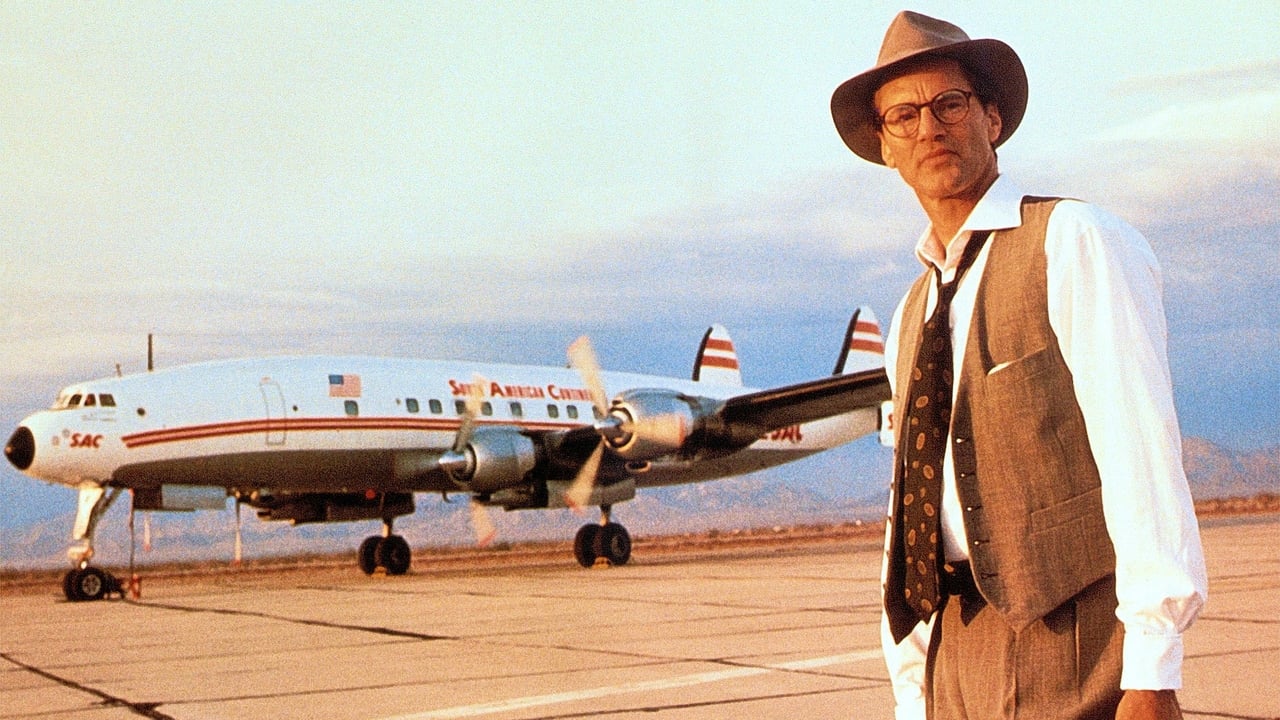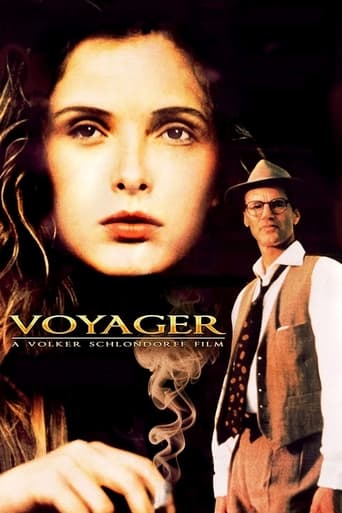2hotFeature
one of my absolute favorites!
Connianatu
How wonderful it is to see this fine actress carry a film and carry it so beautifully.
Brenda
The plot isn't so bad, but the pace of storytelling is too slow which makes people bored. Certain moments are so obvious and unnecessary for the main plot. I would've fast-forwarded those moments if it was an online streaming. The ending looks like implying a sequel, not sure if this movie will get one
Gary
The movie's not perfect, but it sticks the landing of its message. It was engaging - thrilling at times - and I personally thought it was a great time.
robert-temple-1
This is an extremely moving and tragic tale of hopeless love between a middle-aged man and a young girl, who ultimately discover that they are really father and daughter. Such situations do arise. Many stories are known of brothers and sisters, and less frequently, of fathers and daughters, who have been separated all their lives, meet when adult, fall in love and even marry. It is because they are irresistibly drawn to each other for reasons they do not comprehend, and they have no previously existing incest taboo. In fact, it would be more usual than not for such a couple to end up in love. This story is taken from the novel HOMO FABER, published in 1957, by the famous Swiss author and playwright Max Frisch (1911-1991). Several grumpy reviews have been written by people complaining that the film is not sufficiently faithful to the original novel. Films rarely are, and we just have to get used to that. The only time a novel was perfectly translated to the screen was in the case of that work of genius, THE FOUNTAINHEAD (1949), where the novelist Ayn Rand not only wrote the screenplay but was given total creative control, overriding even King Vidor as director, and was able to choose her own leading man (Gary Cooper) as well. But otherwise, it has never happened. As someone who has not read Frisch's novel, I am free of the angst which so assails the distressed reviewers who have. The film is made magical by the performance of the enchanting Julie Delpy, who at that age had stepped straight off a canvas by Botticelli. She achieves shadings of mood and emotion of infinite hue, and shows a true genius, whether it be purely instinctive or by design, but it was impossible for me to watch this, even for the second time, without being spellbound at what she brings to the screen. Perfectly cast as her father is Sam Shepard, though he is annoying for two reasons: first, that he never takes his hat off indoors, which is simply infuriating, and second, that despite being supposed to be Swiss, he cannot pronounce the name Joachim properly. Those two sins are hard to forgive. Otherwise he is splendid. But the main credit for this dazzling creation must go to the director, the brilliant Volker Schlöndorff, who has achieved a true work of art. Delpy's mother is played by Barbara Sukowa, who is a very famous actress in Germany, despite her Polish name. She is always fascinating. In this film, however, she is required to play an extremely irritating character, so she is far from sympathetic. But she does it very well. Shepard got Sukowa pregnant when they were young, but she hysterically over-reacted when she imagined him to be marrying her without sufficient enthusiasm, and walked out on him just before the wedding and disappeared. She then married a man she didn't love and gave birth to Delpy who ended up fatherless because Sukowa left the man anyway. The whole tragedy was thus caused by Sukowa's headstrong and irrational behaviour. Twenty-one years later, Shepard meets Delpy on an ocean liner and they are irresistibly drawn to one another. He fights it but she is determined that she loves him, and who could resist Delpy, then or now? So love happens. They slowly make their way to Athens where Delpy's mother is working as an archaeologist, and just before they get there it becomes clear that Delpy is Sukowa's daughter, but Shepard still does not know whether she is really his daughter yet. Then a tragedy occurs. Delpy is bitten by a horned viper (I didn't know they had them in Greece, I thought they only had adders, but I must be wrong), and there is a desperate attempt by Shepard to get her to hospital and save her life. At this point Sukowa turns up. She is extremely unfriendly to poor Shepard, before she even realizes there is any reason to be. They both worry together about Delpy and Sukowa confirms that she is really his daughter, so the tragedy of his love for her becomes unescapable. Delpy survives the snakebite but further tragic events unfold, and things get sadder still. I shall not reveal more. This is a long and deeply engrossing film, made by a master, perfectly cast, and infinitely sad. What really makes it such a classic is the angelic waiflike quality of Delpy. She really is unique in the cinema, and now she is also a director, producer, editor, and composer as well. She did all that for 2 DAYS IN Paris (2007, see my review). So she is a phenomenon. But as an actress, this film is one of her greatest achievements, perhaps the finest.
b-gaist
I saw this when it came out. All I can say, is I still remember the basic plot, and the cinematography. Walter Faber is paradigmatic as the post WWII individual, still blindly devoted to the goddess of Reason in his personal attitude to life, but beset by the unconscious flood of irrational experience: a real example of Carl Jung's warning that what is not made conscious will be lived out as destiny. It is overall a wonderful, understated film, beautifully directed and shot, representing in a gentle way what European directors (and all directors) should concentrate more on - literature, myth, relationship, culture. It's only fault, if I recall correctly, was that it was not longer and deeper, because it really could have been a great film. Go ahead and watch it!
shu-fen
Film helps the sales of a book but seldom vice versa. Not until today I got to know that Max Frisch was so famous and valued in Germany, though heavy European style can be sensed. In town, amongst all the public and university libraries, we can only have three worn-out copies (English translation) in total. The last read date perhaps is 1960, who knows? Sorry, we are not into the book. If it's not the movie, no one here would know who Frisch is. Gotta read the book to see what it's actually about.I like beautiful things. Beautiful scenery of so many countries between Europe and South America, lovely love story, beautiful Julie, still hunky Tom, Greek tragedy, why not? When I watched this in 1991, I felt so happy to see young Julie's sweet smiles and the reverse oedipal expression. Even the Chinese name is tantalizing, "A Glassy Rose": something pretty, smooth and shiny but fragile, just like the relationship amongst Walter, Hannah and Sabeth.Walter is a chaser, he got lots to do one after one, one after one until his heart was fateful hitched tight by a young girl. Voyager should be without legs, they should keep flying on because once they stop and tread on the ground, that would be lethal.
Daniel Goodale-Porter (Nano_Burger)
The first (and last) images of this film really interested me. At the risk of spoiling, we find Faber sitting alone in a Greek airport trying to figure out what the hell just happened to him. A really depressing scene that draws you in to his web of coincidence that is the rest of the story.
Faber is a man of science that really should have a great life(he is the chief engineer on an important dam project), but his past catches up with him with a series of coincidences that play a terrible joke with his life.Delpy is very sexy and very French. The aircraft that crashes is just as sexy. A romp around Europe rounds this great film out. Watch with your wife or girlfriend with wine - not with the guys and beer!

